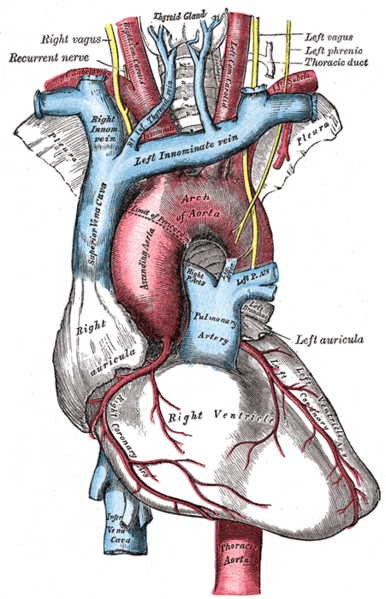 |
| Not for the faint of heart. [Heart diagram from Grey's Anatomy via wikimedia] |
The other day a medical professional was taking my medical history and asked, "Do you have heart disease?" And as I always do when a learner asks me that question during a scenario, I thought, What does that mean?
"Heart disease" is such a broad category, and patients rarely refer to their own experiences that way. Patients who have had heart attacks, high blood pressure or high cholesterol may not include those items when asked about "heart disease."
"Disease" is a big part of the problem here, too, I think. As a patient, I wouldn't think to include palpitations when asked this. Or a pulmonary embolism. Does a stroke count? What if I've been told I have HBP or high cholesterol but am not being actively treated for it?
It is especially important to be clear when asking a string of questions to which the answers are usually no. Because as a patient, it is much easier to say "no" than it is to stop the flow to ask a clarifying question.
Extra credit
Setting the standard
If learners at your school ask broadly about "heart disease," train SPs how to respond realistically and in a standardized way, because otherwise they are almost certainly all giving different answers. Better yet, train learners to ask a broad question about health history first, then to follow up with specific examples based on chief complaint, case and/or presentation.
No comments:
Post a Comment
Pretend you're giving feedback to a student. Be calm, kind and constructive. I reserve the right to moderate or remove comments to keep the conversation focused and productive.